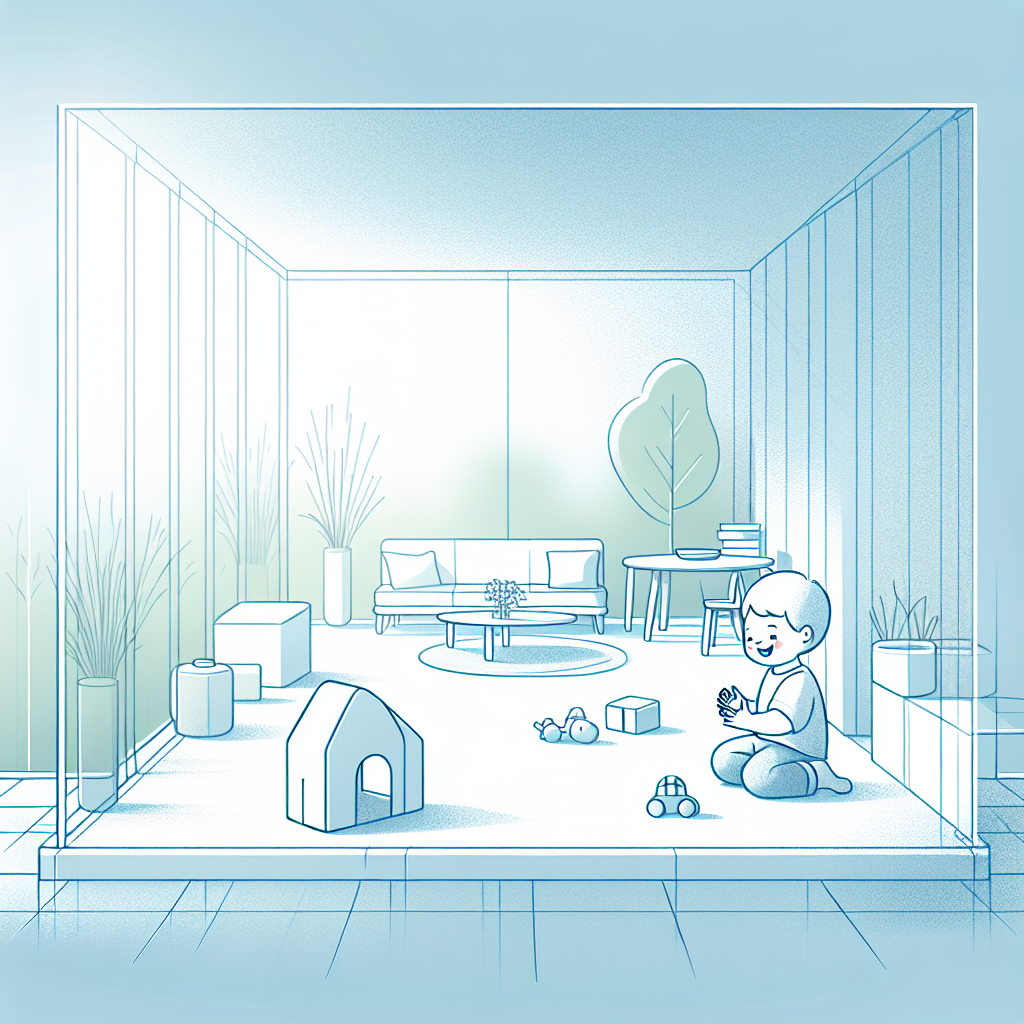The Benefits of Minimalist Parenting for Child Development
Embracing minimalist parenting can have a profound impact on child development, setting the stage for raising happy, uncluttered kids. By prioritizing quality over quantity, minimalist parenting fosters an environment that promotes creativity, independence, and emotional well-being in children.
One of the key benefits of minimalist parenting for child development is the cultivation of creativity. With fewer toys and distractions, children are encouraged to use their imagination and creativity to entertain themselves. This unstructured playtime allows them to develop problem-solving skills, resourcefulness, and a deeper sense of self-awareness.
Additionally, minimalist parenting promotes independence in children. By not overwhelming them with an excess of belongings, children learn to be more self-reliant and develop a greater sense of responsibility for their possessions. This independence extends beyond material belongings and translates into their ability to make decisions, solve problems, and navigate the world around them with confidence.
Furthermore, minimalist parenting nurtures emotional well-being in children by reducing the emphasis on material possessions. Instead of seeking validation through materialistic means, children learn to find joy and fulfillment in experiences and relationships. This shift in focus helps children develop stronger emotional resilience, empathy, and a deeper appreciation for the intangible aspects of life.
In conclusion, embracing minimalist parenting offers a host of benefits for child development. By creating an environment that prioritizes creativity, independence, and emotional well-being, minimalist parenting sets children on a path towards becoming well-rounded, content individuals.
Practical Tips for Implementing Minimalist Parenting in Your Family
Embracing minimalist parenting is a lifestyle choice that focuses on raising children in an uncluttered, intentional environment that prioritizes quality over quantity. Implementing minimalist parenting in your family may seem daunting at first, but with practical tips, it can be a transformative and rewarding experience.
First and foremost, decluttering your home is a key step in embracing minimalist parenting. Encourage your kids to actively participate in decluttering their own belongings, teaching them the value of mindful consumption and the joy of owning fewer, but meaningful possessions.
Another practical tip is to prioritize experiences over material items. Instead of filling your home with toys and gadgets, focus on creating memories through shared activities and adventures. This not only reduces clutter but also fosters a sense of gratitude and appreciation for the simple pleasures in life.
Setting boundaries on screen time is essential in minimalist parenting. By limiting the amount of time spent on electronic devices, children can develop healthier relationships with technology and learn to find fulfillment in other activities such as reading, playing outdoors, or engaging in creative pursuits.
Mealtime can also align with minimalist parenting by prioritizing wholesome, unprocessed foods and involving children in meal preparation. This instills valuable life skills and promotes a healthier approach to nutrition, emphasizing mindful eating over excessive consumption.
Lastly, creating a calm and organized living space is conducive to minimalist parenting. Designate specific areas for toys, books, and activities, and cultivate a sense of order and tranquility within the home environment.
By implementing these practical tips, families can embrace minimalist parenting and raise happy, uncluttered kids who are mindful, appreciative, and content with less.
Nurturing Wellbeing: Minimalist Parenting’s Impact on Kids
Embracing minimalist parenting can have a profound impact on the wellbeing of children. By prioritizing simplicity, mindful consumption, and meaningful experiences, minimalist parenting fosters an environment where kids can thrive emotionally, intellectually, and socially.
Minimalist parenting encourages a focus on quality over quantity, allowing children to develop a deeper appreciation for the things that truly matter. By avoiding the overwhelm of excessive toys and gadgets, kids can cultivate their creativity, imagination, and resourcefulness. This approach also nurtures a greater sense of gratitude and contentment, as children learn to derive joy from meaningful connections and experiences rather than material possessions.
Furthermore, minimalist parenting promotes a less hectic and more peaceful lifestyle, which can significantly reduce stress and anxiety in children. With fewer distractions and a decluttered living space, kids can enjoy a greater sense of calm and clarity. This can lead to improved concentration, better sleep quality, and overall emotional stability.
Moreover, minimalist parenting encourages open communication, active listening, and a strong sense of emotional connection within the family. By minimizing external distractions and commitments, parents can devote more time and attention to nurturing their children’s mental and emotional wellbeing. This emphasis on genuine presence and engagement lays a solid foundation for children to develop strong self-esteem, resilience, and healthy relationships.
In essence, embracing minimalist parenting can profoundly benefit children by fostering a nurturing environment that prioritizes their overall wellbeing, emotional fulfillment, and positive growth.
